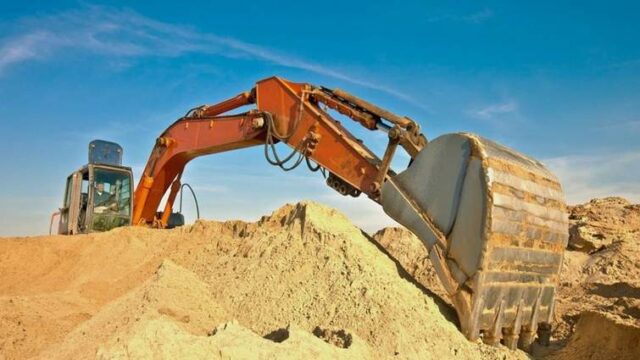Understanding the Ongoing Sand Extraction Debate in Ukraine
The recent auction in Ukraine’s sand mining sector has stirred significant conversations, and it’s crucial for us to break down what that means for the environment, the economy, and the people involved. In a recent turn of events, a company named Amberking Sand LLC, led by Roman Rudenko, won a special permit for sand mining in the Yavoriv region, with a staggering bid of 8.1 million hryvnias. This figure is not just eye-catching; it marks a new high for similar permits in the area.
The Bigger Picture: What This Bid Means
To put this into perspective, the winning bid was well over the initial asking price of 602,000 hryvnias. This leap reflects a growing appetite for sand, which is a critical ingredient in construction, glass-making, and even its uses in emerging industries like fracking. According to recent statistics, the demand for sand globally has surged, with a reported increase of approximately 20% over the past five years, highlighting the economic significance of this natural resource.
Who is Roman Rudenko?
Roman Rudenko is no stranger to the mining business. Known for his extensive involvement in various mineral extraction enterprises, his name often appears in discussions about Ukraine’s resource industry. However, his career has not been without its challenges. Rudenko is currently facing legal issues related to allegations of involvement in illegal amber mining operations, a situation that has drawn public scrutiny and debate. This “amber case” underscores the complexities of the mining industry, where economic opportunities are often tangled with legal and ethical dilemmas.
The Impact on Environment and Community
As this situation unfolds, it raises vital questions about balancing economic growth with environmental protection. The Yavoriv region is known for its delicate ecological balance, and the extraction of natural resources can have far-reaching consequences. For instance, sand mining can lead to habitat destruction and increased pollution, affecting local communities and wildlife.
**Here are some real-life examples of the impact of sand mining:**
- Coastal Erosion: In many regions around the world, sand mining has been linked to increased coastal erosion, leading to loss of land and resources for local residents.
- Water Quality: The runoff from mining operations can contaminate local water supplies, posing health risks to communities that depend on those resources.
- Community Displacement: Some mining projects have led to the displacement of local families, creating social unrest.
Looking Ahead
As the dust settles on this auction, the implications extend far beyond the bidding table. The intersection of legality, ethics, and economics in Ukraine’s resource extraction sector is fraught with challenges that require ongoing examination and dialogue. The high stakes of this industry mean that every decision made will be scrutinized, influencing policies and practices that might shape the future of natural resource extraction in Ukraine.
In conclusion, while the potential for economic growth in the sand mining industry is clear, it is essential for stakeholders—including policymakers, businesses, and citizens—to engage in informed discussions about the balance between economic benefits and ecological responsibility. The unfolding narratives within this sector may very well set the tone for future natural resource management practices in Ukraine and beyond. Stay tuned as we continue to monitor this evolving story!





